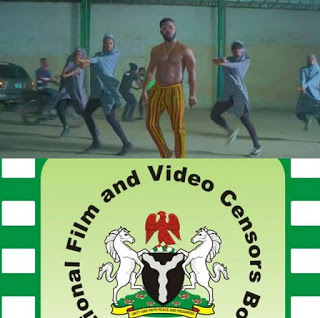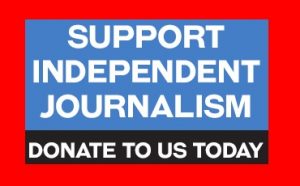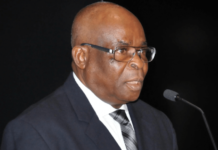Mixed reactions have trailed the new song, “This is Nigeria” of Folarin Falana (Falz the Badh Guy) since the release of its music video a week ago.
While music pundits praised him for his creative prowess in the video, an parody of Childish Gambino’s “This is America”, many lambasted him for what they termed “socio-cultural and religious misrepresentation”.
In the 3 minute, 43 second video that has raked 2.2 million views on YouTube as at Thursday, the artiste featured a character that dressed like a Fulani man, who suddenly abandoned his traditional guitar and beheaded a man. Those who criticized the scene accused Falz of bias and subjectivity in depicting Fulani herdsmen as killers, while exonerating the criminal cattle rustlers and tribal militias of the Middle Belt who have also killed the Fulanis and their families by not portraying such rustlers in the video.
If the reactions generated by the misrepresentation of the Fulanis were spontaneous and tumultuous, the reactions that trailed the portrayal of the Hijab in the video have been massive and damning. In the video, Falz’s female choreographers were shown dancing the shaku-shaku (a dancing style associated with a song related to drug abuse) while putting on the Hijab.
Comments from thousands of angry Muslims castigated the artiste for mocking the Hijab – the mandatory Islamic dress code for Muslim women. They believe the scenes were deliberately done to insult their religious sensibilities. They asked: “What informed the Hijab/shaku-shaku dance concept? What message was the artiste and his director trying to pass across with the disrespectful scenes?”
This situation suggested notions that Falz may after all be playing a script of attacking the Islamic religion, denigrating the Hijab and demonising the Fulanis, especially as the general election draw closer and the Christians are already on the streets protesting against President Buhari. The timing of the video and the concept are also instructive because the Christian Association of Nigeria (CAN) actually supported the opposition Peoples Democratic Party (PDP), which was in the saddle in 2015. Hence, the chickens may actually be coming home to roost.
However, Falz, in his reaction, said: “Those (shaku-shaku) girls are obviously symbolic of Chibok girls and government’s extremely sluggish attitude to the girls’ kidnap, including the fact that entertainment and dancing continuously distract us from everything happening. That’s why the girls were dancing. It was so bad that when some girls were brought back, some of them said they aren’t coming back anymore. That just shows how much time had passed, and how much disregard we have for the lives of those girls. It’s really disturbing.
In reality, there was nothing depicting that the shaku-shaku girls in Hijab symbolise the abducted Chibok/Dapchi girls. Unlike other scenes such as the police brutality and the snake-swallow money scenes, which had special lyrics dedicated to them, there was nothing of such that suggested that the artiste was depicting the Chibok/Dapchi girls. “There could have been better ways of depicting the Hijab scene without affecting the religious sensibilities of anyone,” many contested. The video no doubt was demeaning to the entire Muslimahs across the world. Where is the respect for freedom of religion and self dignity?
One example too many
Before now, there have been instances where the Islamic symbols such as the Hijab have been ridiculed, all in the name of works of art and freedom of speech and expression. On several occasions, filmmakers bastardize beautiful Islamic names in movies and often times, such character assassinations go unpunished.
In the past, we have unfortunately witnessed the bastardization of Islamic names in movies like Basirat Baseje, Aminatu Pa-pa-pa, Osanle Modinat, Sikiratu Sindodo, Kudi Klepto, and of recent Jelili Oniso, Kamilu Kompo, and Muniru ati Ambali, among others. It would have been better if these films were given other titles that have nothing to do with Islam, because the characters and the roles played in these movies do not represent the true meaning of their names. Irrespective of whether the films passed through the censors board or not, the rest is now history. Yet, the bastardization continues unchecked!
Few days ago, my attention was drawn to the trailer of a yet-to-be released Christian evangelical movie titled “My Counsellor”. Sadly, in the 1-minute trailer, the producers of the film, Mount Zion Movies, did not see any other name to portray the local food vendor other than Rasheedah, one of the beautiful names in Islam. That is the feminine version of Ar-Rasheed, my name, which is one of the attributes of Allah, with the meaning; The Guide.
Pathetically, as portrayed in the movie, Rasheedah isn’t just a local food vendor with a thick Yoruba accent. She is portrayed as a diabolic character who used fetish means to lure a supposedly born-again Christian to impregnate her.
One does not need an Oxbridge degree to decipher that such a negative portrayal is an ideological cum intellectual war against Islam and the Muslims. If not, why portray Islam and the Muslims in such a negative manner when they could have used neutral names not associated with Islam?
Ignoring the Censors Board
Nigeria as a country has a National Film And Video Censors Board (NFVCB), a regulatory agency set up by Act No. 85 of 1993 to regulate films and the video industry. It is however sad that many of these videos do not pass through the body before they are released for general consumption. It is the duty of the agency to censor and rate the visuals, but artistes ignore the body for whatever reasons best known to them, and the regulator looks on, criminally silent, without invoking any punitive measures.
For the purpose of this article, I reached out to the Director, Licensing Department of the NFVCB, Mr. Cornell Agim, who said the singer, Falz didn’t bring his music video for licensing and rating before he released it to the public and unfortunately, the agency’s monitoring team hasn’t reported the video to the directorate as at the time I called him on Wednesday (May 30).
He said that, though it is their job to censor and rate videos before they get to the public, “they can’t be everywhere”. He maintained that journalists and members of the public affected by the visuals are expected to notify them. With that, they can investigate the videos and bring the perpetrators to book.
Is this about freedom?
Filmmakers, artistes and the media have always hidden under freedom of speech and works of art to commit nefarious acts against Islam. They have however forgotten that if freedom is uncontrollable, it leads to destruction. This shows that no matter the amount of rights a man is entitled to, if there is no limitation, it will definitely be abused. This expression is very apt in describing the excesses of the media, filmmakers and artistes like Falz, a law graduate who should be conscious of the dictates of the law, but who failed to submit his work for censoring and rating before he released it to the public.
Allah (SWT) warns: “Not a word does he (or she) utter but there is a watcher by him ready (to record it).” – Qur’an 50: 18. Prophet Muhammad (peace be upon him) adds: “Anyone who believes in Allah and the Last Day should either speak good or keep quiet.”
Pope Francis once said, in his reaction to the Charlie Hebdo saga on his way to the Philippines in January 2015, as quoted by many international media, “If my good friend, Alberto Gasparri (who was beside him) says a curse word against my mother, he can expect a punch!” The Pope added: “It is normal. You cannot provoke. You cannot insult the faiths of others. You cannot make fun of the faiths of others. Freedom of speech and expression are fundamental human rights. However, there should be a limit to offending and ridiculing the faiths and beliefs of others.”
Way forward
If one has to go by the submission of the Pope, there would definitely be no cases of bloodshed, similar to what the world witnessed during the violent protests over Prophet Muhammad’s caricature by a Danish newspaper in September 2005 and the January 2015 Charlie Hebdo cartoon crisis in France. During the crisis, thousands of innocent people lost their lives and property worth billions were destroyed.
Rather than going violent and taking the law into their hands by killing innocent people and vandalizing property, Nigerian Muslims should rather embark on intellectual debates to counter the stereotypes against their religious symbols. For instance, there is nothing wrong if all the Muslim organizations in Nigeria petition the National Film and Video Censors Board to investigate Falz’s video and bring the artiste to book.
Nigerian Muslims can also have a body like the Action Committee Against Defamation of Islam (ACADI), which fought for the rights of the Muslims in the past, to sensitize the members of the creative industry through series of seminars and other enlightenment programmes. They need to know that, unlike other religions, Muslims do not toy or joke with the sanctity of their faith , which must be respected in the interest of peace and harmony.
Where that doesn’t work, the Muslim body can organize press briefings and stage peaceful demonstrations to address such infringements and/or call for Muslims to boycott the anti-Islamic movies and music videos, like is being done in the Western world.
Going forward, adopting these measures would go a long way to address the problem.
Rasheed Abubakar is a journalist and the author of “Muslims and the Threats of the Media”. Email: rawshield123@gmail.com | Twitter: rawshield123












